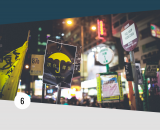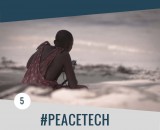Uganda: Restoring Hope

In 2002, when Caroline was seventeen years old, she was abducted in northern Uganda by rebel soldiers in the Lord’s Resistance Army (LRA), a militant group responsible for recruiting child soldiers and for widespread atrocities over the past two decades in central Africa, including Uganda, the Democratic Republic of Congo, and Sudan. When the soldiers found her, she was traveling home after spending a night in the bush in fear of the LRA attacks. They pierced her lips with a sharp piece of metal, threaded a lock through the hole, and padlocked her mouth shut so she could not say anything while they raped her. When people from her village found her the next day in a district in northern Uganda, they had to slit open her lips with a knife to remove the padlock. For years, she lived with her injuries, known by her community as dako ame doge okak, the woman with the slit-opened mouth.
In 2010, the African Youth Initiative Network (AYINET) found out about Caroline’s case. The organization, based in northern Uganda, has provided surgery to more than 2,500 victims of serious violations and helped to provide nonsurgical medical care to an additional 2,000 victims. The people who AYINET serves have suffered injury and deformity due to physical trauma, gunshots, retained shrapnel, maiming, immolation, torture, and sexual abuse. They are in critical need of reconstructive surgery and psychosocial support. AYINET not only provides medical services, but also emotional support, helping survivors toward the full restoration of hope. The interplay between physical and emotional needs reinforces their ability to deal with their situation. Such work, particularly for women and children, aims to facilitate physical and emotional healing and to build up resilience within individuals, families, and communities, helping people to recover from the crimes committed against them and deal with their effects in their present and future lives. For victims and their communities, sustainable peace begins only when physical and emotional suffering stops.
Counselors from AYINET visited Caroline in her village several times, traveling four hours by motorbike over rough terrain. When they obtained funding, they brought her to the city of Lira in northern Uganda, where she was operated on twice to repair her mouth. “If I had power, I would not have lived with this disfigurement for all these years,” she says. “But I had no choice, until AYINET came all the way to my deep village, paid for my transport to the hospital, took care of me, and even paid my medical expense. I can’t thank the people enough who supported me.”
Untreated war injuries are a reminder of the sustained shocks of conflict, and for many victims, severe physical and emotional pains are a further denial of their right to live. Treating injuries helps bring peace to victims and their communities who desperately need it. Helping someone who has been in anguish for years walk free from pain is effective, practical human-rights work; it is true justice, delivered beyond the courtroom.

